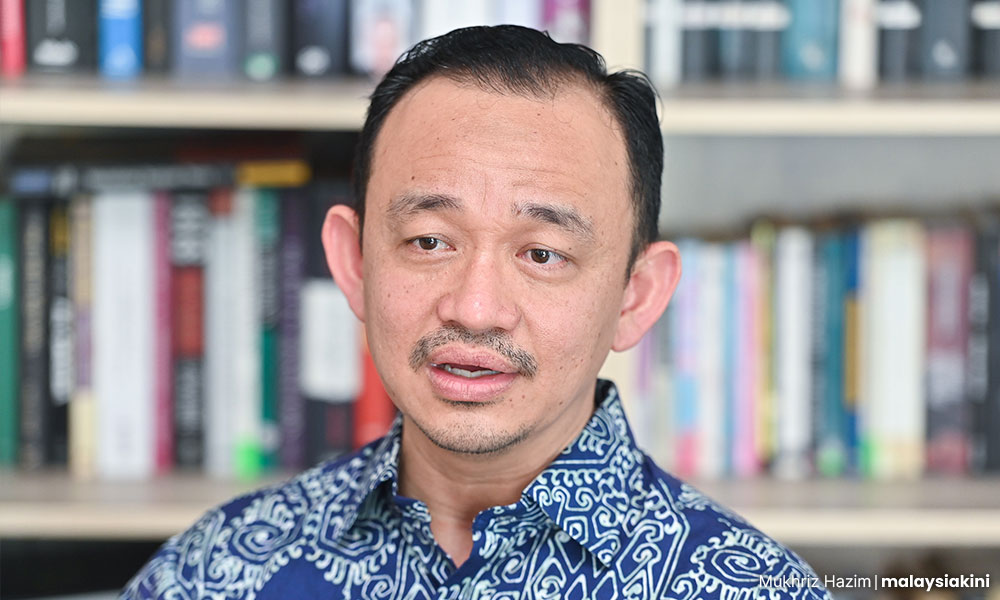The higher education minister’s announcement in Parliament that there are no plans to repeal the Universities and University Colleges Act 1971 (UUCA) is disappointing on two levels.
First, it reneges on the minister’s recent promise to restore trust in the higher education system. A statement of such finality that UUCA will not be repealed without any meaningful discussion with stakeholders hardly serves to engender trust in those involved in the system or relying on it.
Instead, the pre-emptive statement shows that the tired old show will go on, with new players but without any change in the script.
The theme is not “trust me” as the minister pleads in the preamble to his resolutions but a continuation of the same old ‘listen to me’.
Disappointing, also, is the minister’s reason for not repealing the Act, which is, that it would interfere with the administration of universities in the transition.
This is hardly convincing. There are well-established legislative drafting practices to provide for the transition of laws that statutory legal experts can apply to ensure a smooth transition into new legislation without disrupting existing positions.
A new Act of Parliament can be introduced progressively or after a period to allow the operations in the system to transit smoothly into the new regime of laws.
We submit that the government’s reluctance to repeal the Act is not based on any administrative difficulty but an unwillingness to relinquish its control over public universities.
The Act is an instrument of control that has deprived public universities of the essential characteristics of a university. It is for this same reason that calls for its repeal have grown in these last three decades.
Origins of UUCA
The regulatory formula of the Act when first passed gave the government monopoly over the establishment of universities but once established under the terms of the Act, the corporatised university was to function as a self-regulating, autonomous body.
The model has its origins in Europe, but it became the model of choice adopted by almost every former British colony and protectorate when they became independent.
Under that European model, the government would establish and fund the universities, but each institution would govern and manage its own affairs, including the regulation of staff and students through a collegial system in accordance with its own constitution.
Universities would be required to adopt the template constitution that is prescribed by Act. The template constitution prescribes a bicameral governance structure made up of the Senate and the board of directors.

But not all powers of the university would be centralised in the two bodies but would be distributed among the officials and authorities of the university.
Under this model also, neither the minister nor the government has a role in the administration of the university. The minister’s powers over the university are akin to that of the university visitor, resolving internal disputes and investigating the activities of the university.
Independent of government control, the governance structure of the university would have led to the establishment of strong centres of learning and research giving expression to the aspirations of higher education whilst being responsible to different stakeholders, including the government.
From university to government department
Instead, what transpired in Malaysia was that various amendments to the Act, beginning in 1975, converted the university into a government department.
Under the original model, there was no ministerial bureaucracy overseeing the public universities. The public university was to be managed internally by its own administrators in accordance with the collegial system mandated in the statutory constitution.
However, in 2012, an amendment to the Act established a higher education bureaucracy under a director-general of higher education.
For the sake of brevity, we have not documented the successive legislation amending the Act. However, a reading of the different amending acts shows inconsistencies in the legislative approach, indicating a slack in the government’s understanding of the nature of the university and its dynamic role in national development.
The 2012 amendments followed an earlier amendment in 1996 that attempted to corporatise universities using a commercial model.
Corporatisation, according to a paper presented by the then-education minister, was meant to strengthen and modernise public universities and make them more responsive to social demands.
But neither bureaucratisation nor corporatisation of the university was preceded by any inquiry into how the new provisions would sit beside the collegial governance of institutions.

Sadly, it did not matter because by now it was the government that was ruling the universities.
The hardest blow was to come in 2009 when the Statutory Bodies (Discipline and Surcharge) Act 2000 [Act 605] was applied to regulate the discipline of officers and staff of public universities including academic staff.
Prior to that date, the discipline of university staff (and students), including making disciplinary rules was a matter that was regulated internally by the board of directors of the university - through committees established for that purpose.
The provisions of the Act that placed discipline within the aegis of the university were repealed in 2009 to facilitate the application of Act 605.
Serious and damaging implications
The application of Act 605 to public universities has implications that are more serious than simply altering disciplinary procedures.
Indeed, public university staff are now regulated by rules that are embarrassingly at odds with the role and responsibilities of university staff as producers and disseminators of knowledge.
Not only do the provisions strike at the heart of academic freedom, but they also deny academics the constitutional freedom of expression available to everyone.
We mention these provisions, not as a full compendium of laws that have struck at the concept of the university but only as a selection to show that unless the Act is repealed and replaced with legislation to restore university autonomy, academic freedom and collegial governance, this country would be denied those contributions to national and human development that only a university can offer.
Students and UUCA
The Act is also desperately deficient in dealing with the needs of the students attending public universities.
There are no provisions in the Act securing the interests of students who attend them.
The amendments made in 1975 subjected public university students to some of the most draconian restrictions applying to a group of people.
The amendments were passed in the wake of student protests speaking up against poverty in the country.

It took almost 40 years for these to be removed, but only after the courts had found most of them to be unconstitutional.
But there are still no provisions that protect students or give effect to the centrality of students in higher education.
It makes a mockery of student-centred education as specified in the laws relating to accreditation and standards. There must be new thinking on the role and position of students in higher education, with their rights clearly enunciated and procedures introduced to deal with student dissatisfaction.
These rights and procedures must go beyond the grievance committees that some universities have established. A change can only be brought through new legislation.
The present proposal to give students a participatory role in the management of the canteen falls far short of the participatory role that would give students a stake in the way universities are managed.
A divided higher education system
The higher education system in this country is in disarray. There are no less than seven different sets of laws and regulations that regulate more than 10 different types of institutions.
Political expedience has made higher education an utterly divided experience. The divided system is without any unifying principle or regulatory agency.
Higher education institutions operate in silos, oblivious to the common purposes and high principles of education and the role higher education plays in social cohesion.
Indeed, the higher education community is divided by this higher education system that encourages bias and discrimination against students from the different sectors of higher education.
They have no regular common space to meet and mingle, either during or after their education. Instead, the system has created divisions even in the workplace spawning biases and prejudices.
A higher education system as divided as ours will be resistant to policies or strategies for development because of the obstacles created by the different agendas of the divided system.
The divided system also prevents sharing of resources and academic collaboration across the institutions.
The way the National Council on Higher Education Council is treated is another example of the indifference of the government to the laws that are passed by Parliament.
The National Council on Higher Education was established by statute as a policy-making body over the whole of higher education. The powers vested in the council provide a means to unify the divided sector.
The council is made up of the minister, who is the chairperson, and other members who are appointed by the minister.
It is therefore the minister’s duty under the Act to appoint the members of the council. Not establishing the council amounts to non-compliance with the law.
However, at some time in 2011, the council ceased to function. Its functions henceforth were apparently performed by other parts of the Education and Higher Education Ministries and the Higher Education Department.
Such disregard for the laws is another reason for the repeal of the Act and to replace it with laws that strengthen the higher education sector.

One of the ways to go forward is to implement the reform proposals that were set in motion by former education minister Maszlee Malik under the previous Pakatan Harapan (Harapan) government.
The different higher education institutions must be brought together in a single principle-based legislation that will be the unifying law on higher education.
Institutions that were historically established to serve different purposes can still be maintained but they must conform to overarching principles that are essential to higher education.
Such legislation will help build the trust of parents, students, employers and the international community of higher education.
The repeal of the UUCA is not a political issue. It is a vital educational matter that would affect the nation for generations to come. - Mkini
The views expressed here are those of the author/contributor, Gerak and do not necessarily represent the views of MMKtT.




No comments:
Post a Comment
Note: Only a member of this blog may post a comment.